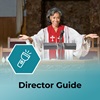With the growth of the Internet has come a huge increase in the spread of so-called urban legends. These mythical stories (for example, the ring of evil doctors that supposedly harvests the kidneys of drugged hotel patrons) have absolutely no basis in truth.
Though these urban legends are patently false, they are unusually creative and interesting. They often seem credible. The effect is that many people believe them fervently and pass them on. Alas, the myths refuse to die. (Ask members of Congress or the FCC, who weekly get sacks and sacks of mail protesting bills or policy changes that were never even considered!)
The same power of myth is at work in small group ministry. In our church, as we have tried to recruit potential small group leaders, we have discovered that many qualified Christians are persistently reluctant to commit. Why? The more we probe, the more we realize that many in our "capable, potential leader pool" have embraced certain "urban legends" about what it takes to lead a small group.
The following chart attempts to identify some of the most common false ideas about small group leadership, and replace them with truth.
| Myth | Truth |
| Must be a Bible scholar (preferably with some knowledge of Greek & Hebrew) | Is a Bible student (steadily growing in his/her knowledge of the Word) |
| Super Shepherd! Has deep personal contact (via email, phone calls, over meals) with everyone in the group every day or two | Creates (with help) an environment where the group members care for one another—each using his and her gifts |
| Has it "together" (i.e. has few, if any, weaknesses or failings and works carefully to hide such flaws) | Knows he/she does NOT have it together and never will! Is human, real, and honest about shortcomings and is trusting God for change in those areas |
| Leads group as though it is a "one man/woman" show | Understands the importance of involving everyone in the meetings. Group gatherings are highly participatory |
| Seldom asks for help from staff, elders, coaches, group members | Insists on help from staff, elders, coaches, group members |
| Needs to have a big, fancy home | May or may not have a big, fancy home. If not, no big deal! (Other group members can host meetings and socials as well.) |
| Can not be effective without lots and lots of advance training | Understands that some advance equipping is necessary (and takes advantage of it), but knows the best and most useful training happens "on the job" |
| Should be an administrative wizard & provide visionary leadership | Should be a facilitator, simply keeping the group "between the ditches" and headed toward the goal |
| Dominates discussions (doing most of the talking); makes all or almost all of the decisions; does everything himself/herself | Delegates; decentralizes the ministry, divvies up responsibilities. |
| Has all the answers | Knows where to go for answers (and is willing to search) |
| Entertainer (makes sure everyone is happy and having a good time) | Encourager (affirming and challenging group members to grow) |
| Is responsible to plan and pull off everything | Is responsible to make sure that things get planned and pulled off |
| The goal is great meetings. | The goal is relationships marked by love, acceptance, honesty, and encouragement, which ultimately lead to lifechange and growth. |
We are finding that the more effectively we dispel wrong ideas about small group leadership and replace them with truth, the more effectively we can recruit small group leaders. And ultimately, the more effective and healthy our overall church ministry will be.









